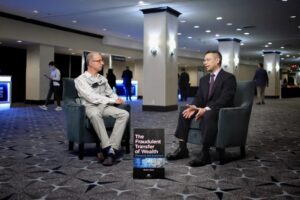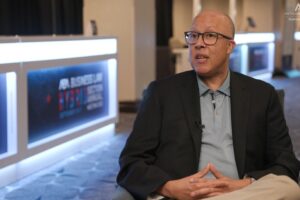CURRENT MONTH (December 2022)
Bankruptcy
Purchase of Lien by Straw Man Lands Counsel in Criminal Trouble
It sounds too good to be true—the owner of a closely held business that is underwater buys the secured lender’s lien on the business assets at a steep discount and restarts the business in a new entity without the burden of the excess secured debt or the trade debt. Unfortunately for the lawyer representing the owner, it was too good to be true, and he likely will be tried for the second time on criminal charges for fraud in connection with the transactions. U.S. v. Filer, No. 21-2948 (7th Cir. December 20, 2022). A key fact in the case involved the attorney’s misrepresenting the true nature of the buyer to the bank that held a security interest in the business assets—it was a new entity that was in fact secretly controlled by the owner of the troubled business. Had the bank known this fact, it would not have negotiated with or sold to the buyer. The attorney actively participated in and directed this deception, as described in some detail by the Court of Appeals. From there, the ongoing sequence of necessary misrepresentations involved in enforcing the transferred lien in a state court proceeding and putting the entity that had owned the business into bankruptcy, without revealing the ownership issues, became a tangled web of further deceptions and alleged crimes. A jury convicted the lawyer for his role in this scheme to defraud, but the District Court granted his post-trial motion for an acquittal, reasoning that the bank had not been defrauded, but simply denied information about the identity of the buyer, and that the other creditors were not victims because if the bank had foreclosed they would not have recovered anything anyway. The Court of Appeals saw things much differently. In particular, with regard to the straw man entity set up to buy the lien from the bank, the Court noted that the bank was kept in the dark about a key fact—the insider was the real buyer, and the bank’s policies clearly forbade such a transaction. On the issue of whether the trade creditors were really victims of the fraud, the Court declined to rely on the projected result that they would have received nothing anyway, presenting alternative hypothetical scenarios that might have led to some recovery. The decision is a must read for any lawyer considering structuring a workout that involves acquisition of company debt by an insider, and the foreseeable disclosure issues that are likely to present themselves moving forward with enforcement of the debt and potentially pursuing a bankruptcy for the insolvent shell that would be left behind. Let the buyer (and buyer’s counsel) beware!







